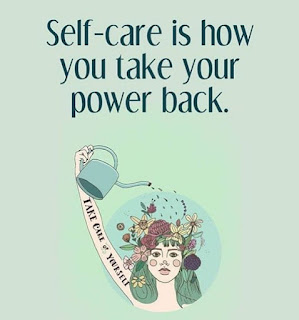Self-care (29/07/20)

Self-care is any activity that we do with the intention of looking after our wellbeing – whether that be our mental, emotional or physical health. Psychologist Agnes Weinman defined self-care as ‘something that refuels us rather than takes from us’ – ultimately it must be an enjoyable activity that you do by choice and has a positive impact on your mind and body. Often, in our busy lives it is the last priority on a long ‘to do list’ – it’s so easy to put other’s expectations of us before looking after ourselves. The reality is, if we don’t take good care of ourselves, then we aren’t in the best place to care for our loved ones, and strive in other areas of our life, and our wellbeing can be affected. So what does self-care mean to you? For me, it’s taking the time on a daily, weekly and monthly basis to do things that make me feel good and it is essential for my mental wellbeing. I have definitely experienced a time in my life where I wasn’t making any time for self-care (as a new m...





